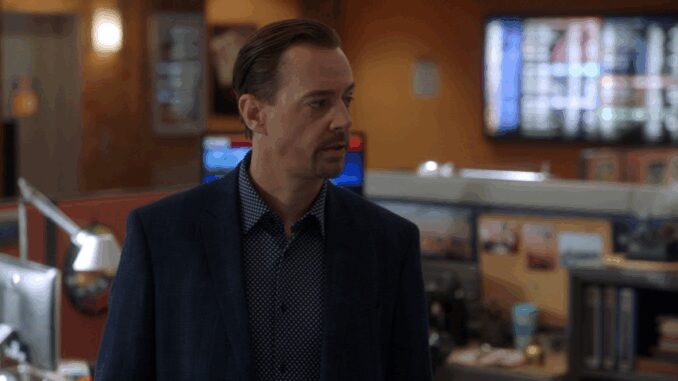
Tony’s Joke Went Too Far? McGee & The Infamous Skirt Scene!
In the long-running crime procedural NCIS, camaraderie and humorous banter among the team members often provided light-hearted moments amidst serious investigations. One particularly memorable and controversial instance was when Tony DiNozzo (played by Michael Weatherly) cracked a joke at the expense of his fellow agent Timothy McGee (Sean Murray), involving what fans now dub as the “Infamous Skirt Scene.”
The scene unfolded during a Season 2 episode where McGee had to go undercover. The operation, already stressful due to its demands, took an awkward turn when it required McGee to don a skirt in order to blend into a particular environment. While the show was attempting to mix humor and drama, Tony’s reaction may have gone a bit too far.
Immediately after McGee appeared in his undercover outfit, Tony unleashed a barrage of jokes. Some of these comments, while in line with Tony’s usual teasing, crossed into uncomfortable territory for many fans. Key moments included:
- Calling McGee “McSkirt” with excessive glee
- Mocking his walk and posture in front of fellow agents
- Referring loudly to McGee as “NCIS’s newest fashion icon”
While humor has always been a staple of Tony’s character, this particular incident sparked debate among fans and critics alike:
- Was Tony’s behavior just friendly teasing—or was it borderline bullying?
- Did the scene reinforce outdated gender stereotypes?
- Should the writers have toned down the jokes in favor of more respectful humor?
Despite the controversy, the scene emphasized key dynamics within the team. Tony and McGee often shared a brotherly relationship filled with ribbing and mockery. However, the “Infamous Skirt Scene” ultimately served as a reminder that humor—no matter how well-intended—must evolve with changing times and sensitivities. After the episode aired, several fans took to online forums voicing mixed reactions, some defending the character dynamics while others called for more thoughtful writing.
In hindsight, the scene has become a talking point not just for its comedic element, but also for the larger conversation it invoked: When does a joke become too much? And how can beloved characters grow with their audience while maintaining the spirit of camaraderie that fans cherish? Perhaps the answer lies in balance—respectful humor paired with character development and empathy.